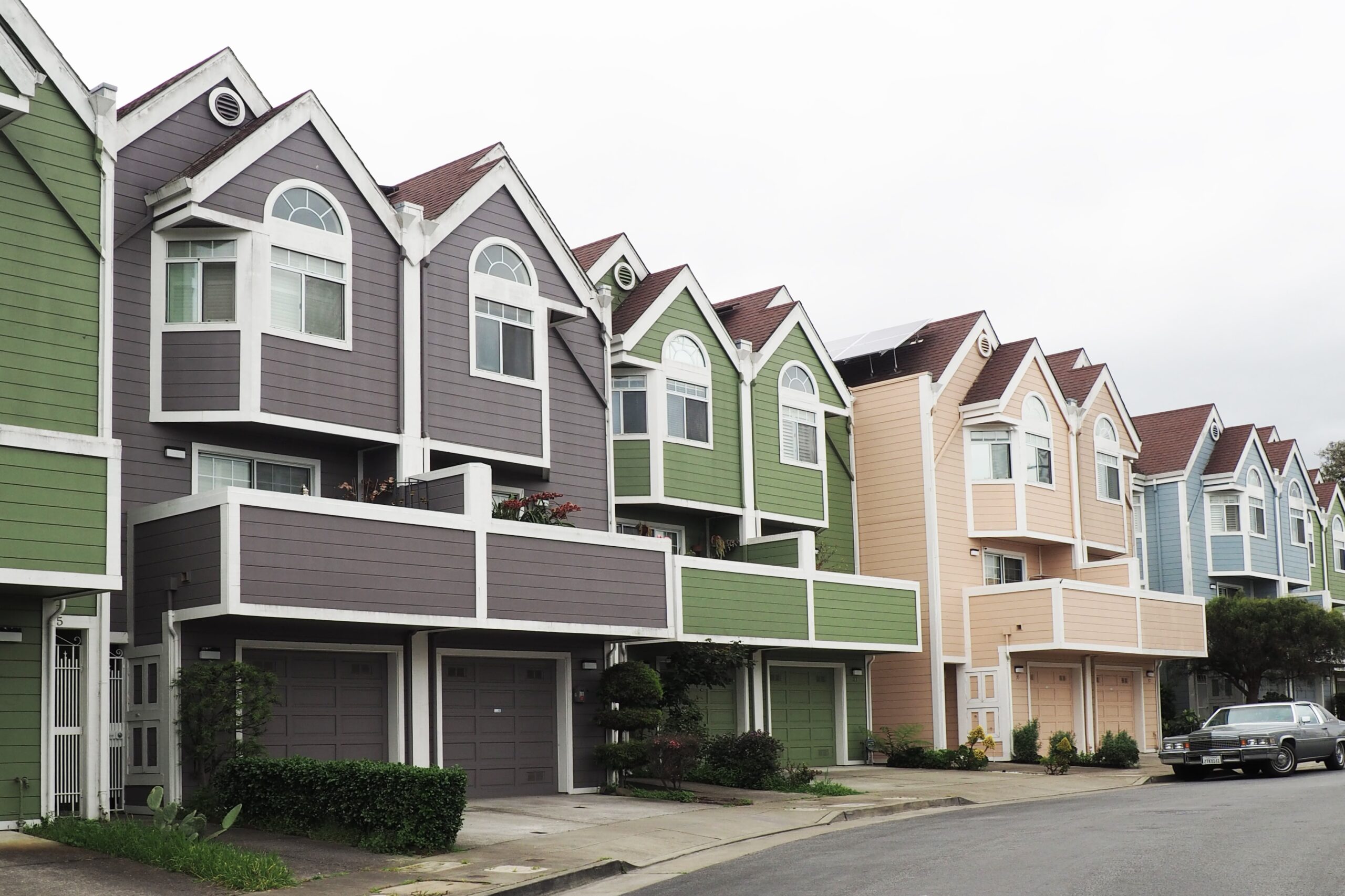Does Homeownership Influence Attitudes Toward Housing? Survey Says … Probably?

A new Michael Manville (2021) paper asks: how can coastal liberals reconcile their egalitarian values with exclusionary land-use policies that exacerbate inequality? California survey data suggests that homeownership can give liberals a NIMBY streak.
Key takeaways:
- Self-identified liberal homeowners in California are less likely to support new homebuilding relative to other liberal priorities.
- The same liberals are just as likely to support more funding for affordable housing, but less so if they might have to pay for it themselves.
- Liberals are more likely to oppose new homebuilding if framed in terms of permit streamlining and zoning reform, but more likely to support it if the discourse centers liberal values like affordability and inclusion.
“Is upzoning a conservative or liberal policy?” UCLA’s Michael Manville surveys survey data in California that shows how anti-density and anti-development coalitions can cut across the traditional ideological spectrum. Noting that there are both liberal and conservative opponents to development, and while “some liberals see zoning changes as essential to a progressive city, others see them as antithetical.”
Manville hypothesizes two sets of motivations for opposing new housing development—material interests and ideology—that could explain why liberal homeowners may oppose new development. (Polling data shows that homeowners oppose development more than renters.) The first is self-explanatory: property owners have a vested interest in restricting supply so asset prices rise.
But this can also be justified through abstract values: “First, liberals might not believe deregulation promotes liberal ends: they might see it less as a path to affordability and more as a giveaway to developers,” Manville theorizes. “Second, even if liberals conceded that deregulation could achieve liberal ends (e.g., make housing more affordable), they might balk at achieving those ends through what appear to be conservative means.”
This hypothesis is consistent with liberal homeowners in California, who are typically more supportive of direct subsidies for affordable housing than upzoning, because they “involve ends and means consistent with their ideology.” Manville also hypothesizes that support for more homebuilding would not just be a function of homeownership, but also “sensitive to issue framing”—whether affordability or deregulation is foregrounded.
California survey data and Manville’s regression analysis support all three hypotheses: (1) homeowners are more likely to oppose more homebuilding, (2) liberal homeowners are more likely to support affordable housing subsidies than new development, and (3) support for more homebuilding can vary by framing. Indeed, liberals surveyed tended to show lukewarm support for new market-rate development–less so than for affordable housing or other liberal causes such as gun control and healthcare, but still some support–which flipped to opposition when primed with deregulatory framings.
Data from two statewide surveys that the Public Policy Institute of California (PPIC) conducted in 2017 includes responses from representative samples on questions about housing development, permit streamlining and upzoning, and affordability.
Here’s the May 2017 question about market-rate housing: “Do you favor or oppose changing California’s environmental regulations and permitting process to make housing more affordable in your part of California?” [61% support, 39% do not support.]
And the September 2017 question: “Do you favor or oppose building more housing in your city or community to meet the current need in your part of California?” [64% support, 34% do not support, 2% volunteer that California already has adequate housing to meet need.]
Manville observes that the first version of the question highlighted deregulation and showed marginally less support than the question framed in terms of a housing supply shortage.
The May 2017 question on affordable housing: “If the state ballot had a bond measure to pay for affordable housing projects, would you vote yes or no?” [70% yes, 24% no, 6% don’t know.]
The September 2017 question: “The California Legislature is considering legislation to impose a $75 fee on real estate documents such as deeds and notices, with a cap of $225 per transaction. It’s expected to generate between $200 million and $300 million annually for affordable housing projects. Do you favor or oppose this proposal?” [46% favor, 47% oppose, 7% don’t know.]
Support fell drastically, Manville notes, when “many survey respondents could imagine themselves paying [for] it.”
After conducting regression analyses, Manville finds: “Controlling for other factors in the models—including homeownership—the odds of liberals supporting a statewide affordable housing bond are 306% higher than they are for nonliberals. The odds that liberals will support deregulation to build more housing in their area, in contrast, are 46% lower than the odds for nonliberals.”
There is another key finding when comparing this data to other issues in the surveys: “the associations between homeownership and national policy are small and statistically insignificant, suggesting that tenure does matter primarily for local affairs.” In other words, homeownership doesn’t make liberals more conservative on foreign policy, healthcare, or gun control—but it does make more of them resistant to more homes.